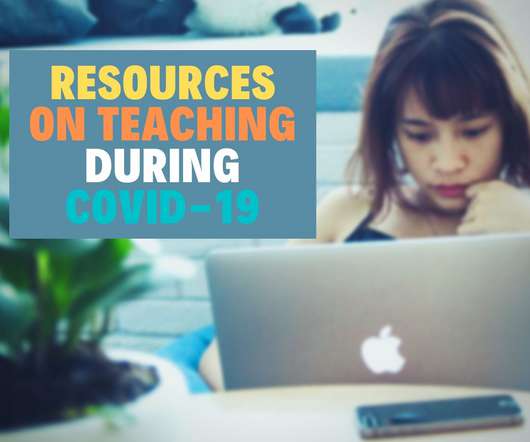Understanding, Teaching, and Reaching Digital Native Students—and Digital Native Caregivers
Waterford
MARCH 11, 2021
Today’s students are digital natives, and increasingly, so are their parents (and many of their teachers). This can be tremendously beneficial—for instance, when scheduling online learning or virtual parent-teacher conferences when in-person learning isn’t possible. Non-natives could be considered “digital immigrants.”















Let's personalize your content